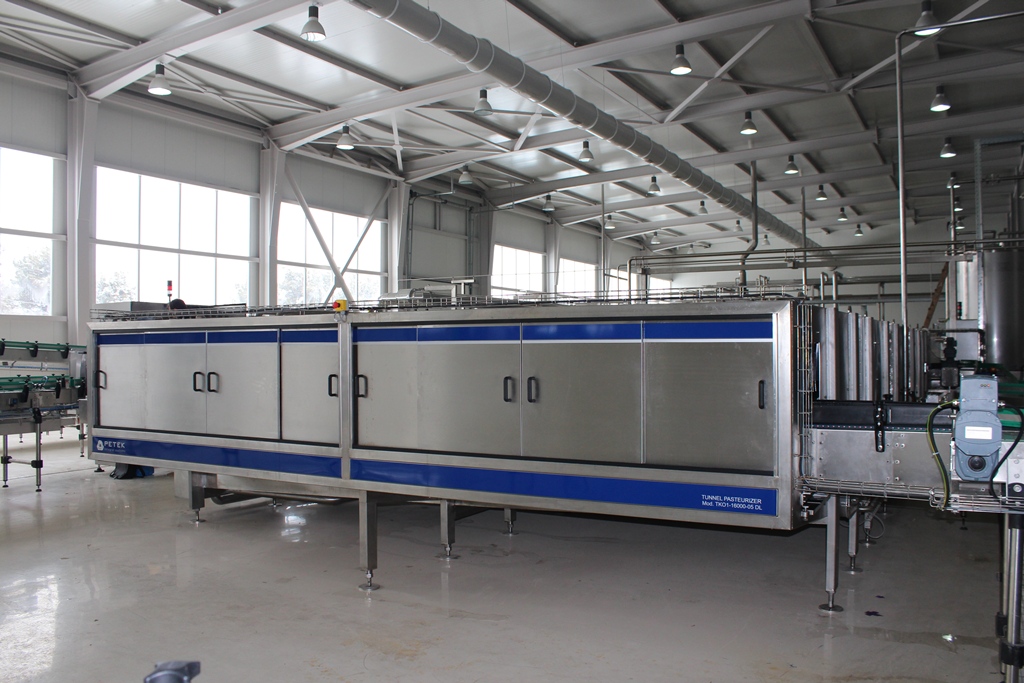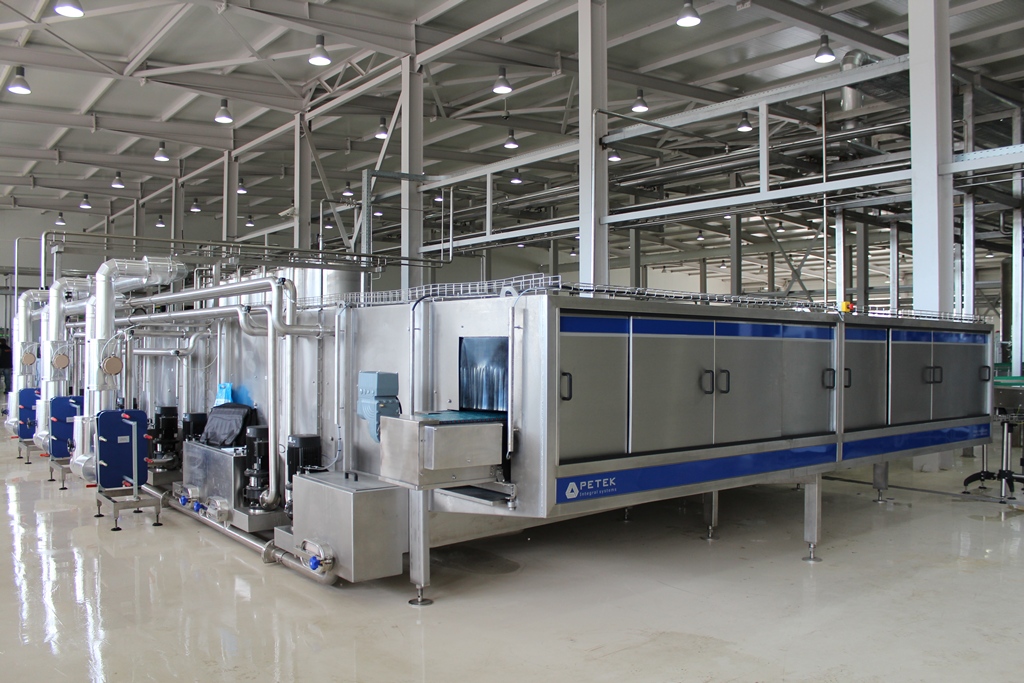
Products
Pasteurization
Flow pasteurizers
Pasteurization is conducted with the flow of beverages through a plate pasteurizer and its brief heating in the pasteurization section and subsequent pasteurization effects in the pasteurizer holdings.
Heating and cooling is conducted through heat exchange on the pasteurizer plate. Low energy consumption is given mainly by the recuperation and exchange of energy through the heated and cooled beverage.
Main advantages of flow pasteurization:
- PU unit protection against over-pasteurization of the beverage
- Low SU values – the pasteurized drink shows minimum sensory changes
- Guarantee of 100% thorough pasteurization of the full volume of the beverage
- High flexibility of the equipment – fast and perfect adaptation to the filling requirements
- Significantly lower energy demands of operation in comparison to tunnel pasteurizer
- Low demands on space, possibility to divide the pasteurizer and buffer tank
- Fast commissioning
Pasteurizer comprises:
- Plate exchanger of pasteurizer
- Hot water circuit with a plate exchanger
- Pipe holding
- Pumps, regulation valves, pneumatic flaps or valves
- Buffer tank including a sanitation pump
- Pipe connections and fittings
- Electrical panel with control system and MaR
Material design:
the composition and temperature of mediums during heat exchange determine the material the pates are made from
- Stainless steel 1.4401, 1.4539, 1.4571
- Titanium 3.7025. 3.7225
- SMO 254
- Alloy C 276
- All elements in contact with beverages must be in FOOD design, installation must be in hygienic design
Sealing materials:
When using an exchanger with sealing, specific rules must be adhered to in relation to the temperature and type of material applied. Sealing ages faster under constantly exceeded temperatures.
Types of sealing - max. temperature – use:
- NBR 140 °C oils, water, food industry
- EPDM 160 °C hot water, acids, food industry
- Viton 180 °C aggressive chemicals, oils, fats
- AFM 190 °C oils
- PTFE 260 °C aggressive chemicals
Tunnel pasteurizers
- Heating of products from the input temperature to the pasteurization temperature
- Temperature changes are ensured by the recirculation of water inside the closed cycle
- Other energy is ensured through the heat exchanger with automatic temperature regulation
Cooling tunnel
- Cooling of the product to the required temperature after entry
- Heat exchange ensured by water from external cooling source (cooling tower, cooling aggregate etc.).
Heating tunnel
- Heating of products from the input temperature to the required output temperature
- The source of heating is water, through heat exchangers with automatic temperature regulation.
TO ASK OR ADVICE?
Do not hesitate to contact us





